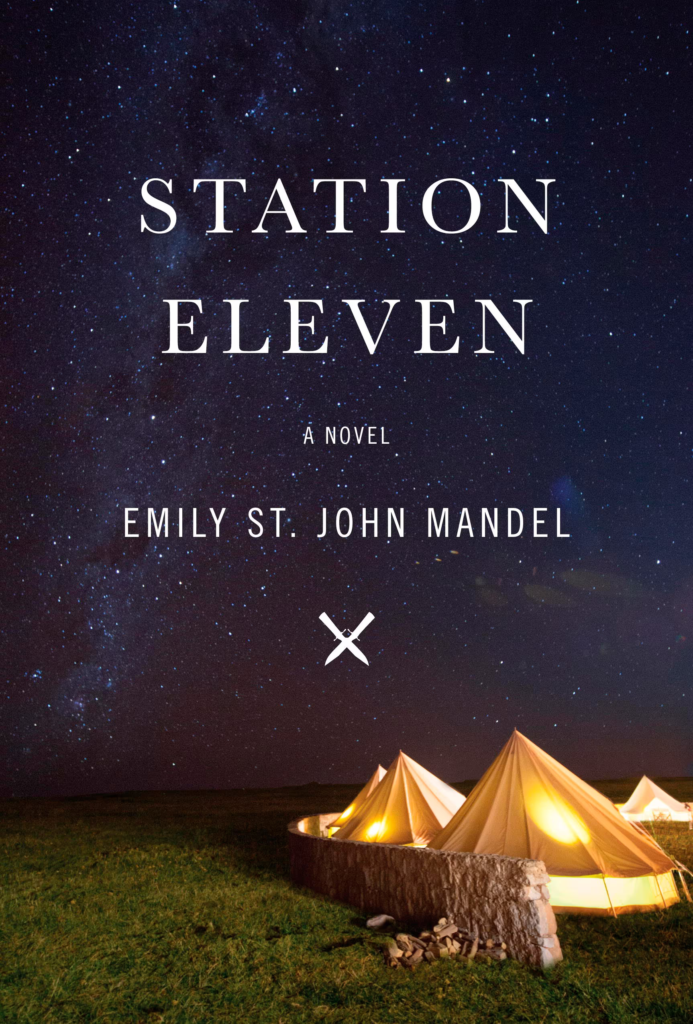Rating: 7/10

A thoroughly compelling blend of hope and horror, this pandemic-apocalyptic sci-fi novel deals with topics such as trauma, survival, memory, legacy, and the web of societal relationships.
Set between the contrasting pre-apocalypse “old world” and a fragmented “new world,” where bands of rovers and settlers survive as best they can, Station Eleven explores the role of memory and human connection in dire times.
While the shifting timeline works as a way to gradually reveal the interconnections between past and present, I definitely found myself wanting to spend more and more time in the new world, leaving the old behind at some point. Despite that, as a fan of character-driven post-apocalyptic novels, I enjoyed the book and will look for more from Emily St. John Mandel. Some highlights:
What’s the point of doing all that work […] if no one sees it?
It makes me happy. It’s peaceful, spending hours working on it. It doesn’t really matter to me if anyone else sees it.
- Jeevan was crushed by a sudden certainty that this was it, that this illness Hua was describing was going to be the divide between a before and an after, a line drawn through his life.
- Hell is the absence of the people you long for.
- Survival is insufficient.
- First we only want to be seen, but once we’re seen, that’s not enough anymore. After that, we want to be remembered.
- What I mean to say is, the more you remember, the more you’ve lost.
- They spend all their lives waiting for their lives to begin.
- No one ever thinks they’re awful, even people who really actually are. It’s some sort of survival mechanism.
- She was thinking about the way she’d always taken for granted that the world had certain people in it, either central to her days or unseen and infrequently thought of. How without any one of these people the world is a subtly but unmistakably altered place, the dial turned just one or two degrees.
- We bemoaned the impersonality of the modern world, but that was a lie, it seemed to him; it had never been impersonal at all. There had always been a massive delicate infrastructure of people, all of them working unnoticed around us, and when people stop going to work, the entire operation grinds to a halt.
- I’m just curious, how’d you get into this line of work?
Gradually, and then suddenly. - This is my soul and the world unwinding, this is my heart in the still winter air. Finally whispering the same two words over and over: Keep walking. Keep walking. Keep walking.
- The more we know about the former world, the better we’ll understand what happened when it fell.
- The revelation of privacy: she can walk down the street and absolutely no one knows who she is. It’s possible that no one who didn’t grow up in a small place can understand how beautiful this is, how the anonymity of city life feels like freedom.
- He woke to quiet voices. This had been happening more and more lately, this nodding off unexpectedly, and it left him with an unsettled intimation of rehearsal. You fall asleep for short periods and then for longer periods and then forever.
- Did this happen to all actors, this blurring of borders between performance and life?
